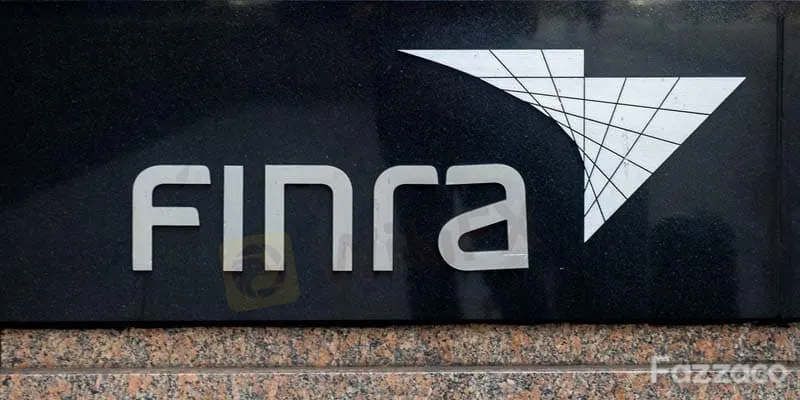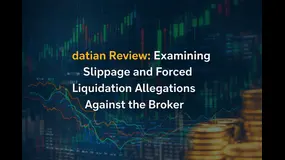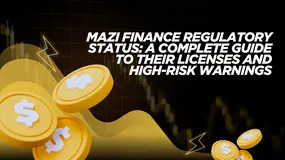WikiFX Valentine's Message | Trade Safely, Together Every Step of the Way
In the Forex Market, Trust Is Not a Promise — It’s Verified Through Safety, Transparency, and Support
简体中文
繁體中文
English
Pусский
日本語
ภาษาไทย
Tiếng Việt
Bahasa Indonesia
Español
हिन्दी
Filippiiniläinen
Français
Deutsch
Português
Türkçe
한국어
العربية
Abstract:A former compliance officer for Interactive Brokers LLC agreed to pay a $25,000 fine to settle allegations he failed to properly oversee the broker-dealer's anti-money-laundering program.

Arnold J. Feist in a letter on Friday consented to a finding by Wall Street's broker-dealer inspector that he was personally liable for a failure by his former employer, Interactive Brokers, to comply with U.S. laws that require financial institutions to protect against financial crimes.
The Financial Industry Regulatory Authority's disciplinary action prohibits Mr. Feist from associating with any of the agency's broker-dealer members for two months.
Mr. Feist agreed to the fine and suspension without admitting to or denying Finra's findings. A lawyer for Mr. Feist didn't respond to a request for further comment.
It isn't uncommon for Finra to take disciplinary action against a compliance officer. But decisions by regulators to hold members of the compliance profession personally liable for the regulatory failings of their employers have at times proven controversial. Lawyers and professional groups in recent years have urged regulators to take such a step with caution, over concerns it could negatively affect how compliance officers act when there are issues on the job, or could discourage individuals from becoming compliance officers in the first place.
The fine imposed on Mr. Feist was preceded by an enforcement action against Interactive Brokers, which in 2020 agreed to pay $38 million to settle related claims around its anti-money-laundering controls.
Authorities in 2020 said Interactive Brokers had failed to strengthen its anti-money-laundering controls during a five-year period in which it grew to become one of the largest electronic broker-dealers in the U.S. based on shares traded, with more transactions cleared for foreign financial institutions than any other dealer. In a series of settlements with regulators, Interactive Brokers neither admitted to or denied the findings.
Mr. Feist's employment at Interactive Brokers ended in April 2020. A spokeswoman for Interactive Brokers said the firm was “strongly committed to ensuring that our current [anti-money-laundering] program meets all regulatory expectations and that our compliance staff have state of the art systems at their disposal.”
During his tenure, Mr. Feist, a veteran of the broker-dealer industry, held full responsibility for Interactive Brokers' anti-money-laundering program after becoming registered as the firm's anti-money-laundering compliance officer in 2006, according to the letter posted to Finra's website on Friday. He also held several other positions at the firm, serving as its general securities representative, principal and sales supervisor.
Despite his role as an anti-money-laundering compliance officer, Mr. Feist failed to “meaningfully familiarize” himself with the day-to-day operations of Interactive Brokers' anti-money-laundering program, the letter said.
He didn't supervise the firm's anti-money-laundering analysts, or take steps to understand how the firm was implementing its program. He also failed to regularly perform a monthly review of at least one of Interactive Brokers' required surveillance reports, and didn't take steps to ensure that any of its anti-money-laundering investigations were adequate, according to the settlement.
While in the anti-money-laundering role, Mr. Feist learned about but failed to recognize the significance of facts that should have shown that Interactive Brokers' anti-money-laundering program wasn't reasonably designed to detect and report on suspicious activity, the letter said.
Ultimately, according to the letter, it was Mr. Feist's responsibility to decide when Interactive Brokers should file a suspicious activity report to regulators. However, he incorrectly believed that the firm didn't need to file a SAR about suspicious activity the firm had first learned about from regulators or law enforcement agencies.
As a result, Interactive Brokers only filed three SARs in response to 37 regulatory inquiries by Finra and the U.S. Securities and Exchange Commission during a period stretching from February 2014 to March 2016, according to Friday's letter.
The penalties against Mr. Feist are similar to other recent disciplinary actions Finra has taken against compliance officers, according to Brian Rubin, a board member for the National Society of Compliance Professionals.
But Mr. Rubin, who is a lawyer at law firm Eversheds Sutherland (US) LLP, expressed some concern about the action, given the divergence between the penalties imposed on Mr. Feist and the earlier settlement reached by Interactive Brokers.
“It's odd that the sanction was so light compared with the sanction against the firm,” Mr. Rubin said. “I don't know the basis for that, but it could be viewed that Finra was looking for somebody to blame.”
The NSCP, a Cornwall Bridge, Conn.-based nonprofit that advocates and provides resources for compliance officers in the financial-services sector, in January proposed a framework it hopes regulators will use when deciding whether to bring an enforcement action against a compliance officer. Mr. Rubin was a member of the committee that authored the framework.
The proposal asks regulators to consider whether a compliance officer had nominal or actual responsibility, and whether there was insufficient support from the company's leadership, including resources, that could have allowed the compliance officer to prevent or mitigate misconduct.

Disclaimer:
The views in this article only represent the author's personal views, and do not constitute investment advice on this platform. This platform does not guarantee the accuracy, completeness and timeliness of the information in the article, and will not be liable for any loss caused by the use of or reliance on the information in the article.

In the Forex Market, Trust Is Not a Promise — It’s Verified Through Safety, Transparency, and Support

Did you face losses due to a sudden change in the trading price on the datian platform? Were your transaction records deleted by the Hong Kong-based forex broker? Did the broker liquidate your trading account multiple times despite not reaching the stage where it mandated this move? Have you experienced heavy slippage on the trading platform? Concerned by these issues, traders have complained about the broker online. We will let you know of these with attached screenshots in this datian review article. Keep reading!

Did you face constant rejections of your fund withdrawal applications by TopstepFX? Have you been denied withdrawals in the name of hedging? Did you witness an account block without any clear explanation from the forex broker? There have been numerous user claims against TopstepFX regarding its withdrawals, payout delays and other issues. In the TopstepFX review article, we have investigated the top complaints against the US-based forex broker. Keep reading!

When choosing a broker, the first question is always about safety and legitimacy. Is my capital safe? For Mazi Finance, the answer is clear and worrying: Mazi Finance is an unregulated broker. While the company, MaziMatic Financial Services LTD, is registered in the offshore location of Saint Lucia, this business registration does not replace strong financial regulation from a top-level authority. Independent analysis from regulatory watchdogs shows a very low trust score, made worse by official warnings from government financial bodies and many user complaints about serious problems. This article provides a clear, fact-based analysis of the Mazi Finance regulation status. Our goal is to break down the facts and present the risks clearly, helping you make an informed decision and protect your capital.
